Best Herbal Tea and Blends to Drink for Women’s Hormone Balance
Looking for alternative ways to balance hormones? Tea is a wonderful natural way to encourage hormone health as while also supporting your immune system and well being.
Note: This post may contain affiliate links. This means if you click on a link and follow through to make a purchase I receive a small commission at no extra cost to you. Thank you for supporting this blog.
Also note: I am not a medical professional and this post is not intended to treat, diagnose or cure disease. Please see your medical practitioner if you suspect a hormonal imbalance.
Does Tea Help Hormones
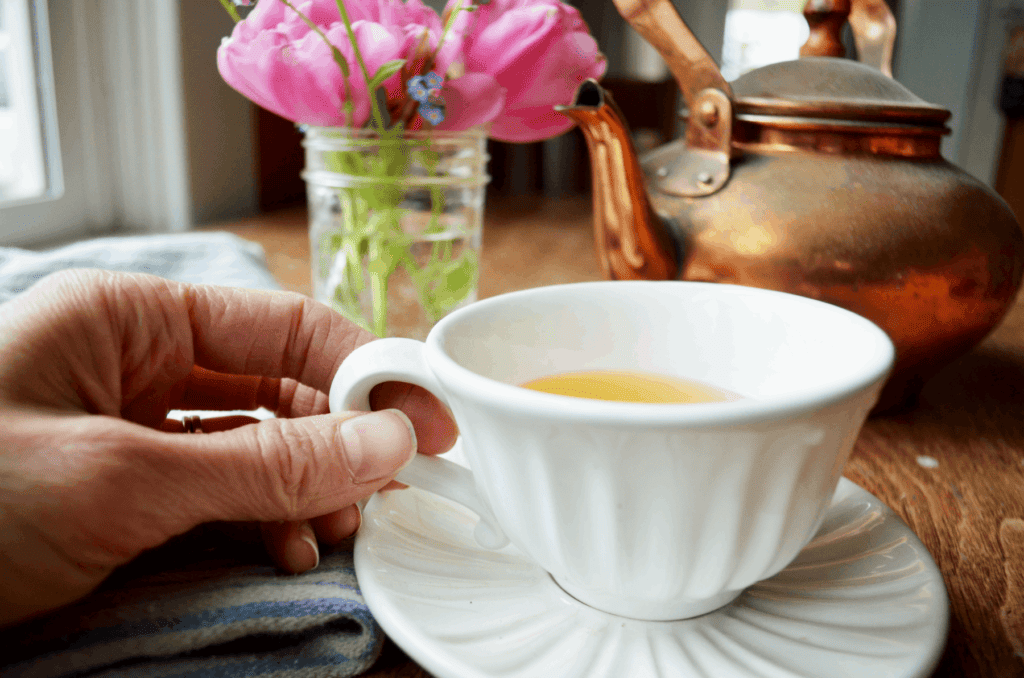
Depending on the type of tea, the chemical make up can cause certain hormones to decrease or increase. Certain teas can help PCOS (polycystic ovary syndrome) symptoms and low estrogen levels that get off. Other tea can help with insulin resistance and so much more! If you’re curious, here are more ways tea can help balance hormones.
Tea can provide many health benefits that encourage your hormones to work properly. Above and beyond this, L-theanine, an amino acid in tea, can have a calming affect, increasing your happy dopamine levels and GABA levels (GABA is an inhibitory neurotransmitter that calms). Cortisol, the stress hormone, can be lowered by tea drinking as well. Studies for this were done using green tea. Yes! Green tea has many benefits and just one is health benefits for hormones. Look below for more on green tea.
What are Hormones
Hormones are basically the chemical messengers between glands and organs as directed by the nervous system to indicate an action to balance the body. These guys encourage our feelings, hunger, actions, growth, sleep, sexual development and even our looks. The endocrine system is the entire group of hormone producing glands or tissues and the hormones they create. There are over 50 identified hormones in the body but today we’ll be focusing on a few key messengers.
Your endocrine system consists of these glands that produce the hormones (messengers) for your body.
- Pituitary gland
- adrenal glands
- Thyroid and Parathyroid glands
- Hypothalamus
- Pineal gland
- Pancreas
- Ovaries and Testes
What do imbalanced Hormones Do
Hormonal imbalances can cause things like problems in the menstrual cycle or irregular periods, mood swings, low testosterone levels, insulin sensitivity, thyroid issues, diabetes and more.
In this post we’ll be focusing on the ways hormone imbalance affects women’s health. Here are a few:
- menstrual cramps and pms symptoms
- energy levels
- vaginal dryness
- irregular periods
- menopausal symptoms such as hot flashes
It’s important to know that hormone conditions can be the sign of an autoimmune condition, tumor, damage the the endocrine system and more. Please see a health care provider if you have ongoing symptoms of imbalanced hormone production.

What Tea is Good for Hormonal Balance
If you’re looking for a more natural approach to balancing hormones, drinking tea is an excellent way to support hormone balance. Here or some of the most helpful teas for balancing hormones. Before you start, consider these tips:
- Herbal tea can support your health but using an herb for it’s health benefits may also mean taking it in a higher concentration such as capsules or essential oils. Talk with a knowledgeable medical provider to see what might be best in your circumstance.
- Know if there are concerns or side effects associated with the herb. Research any herb you’re using to know exactly how it works in your situation and if there are negative side effects to using it. For example, are you pregnant? Are you having surgery soon?
Green Tea
I had to start with this tea because when compared to all other teas, green tea has an overwhelming amount of health benefits. As mentioned above, green tea can produce a calming affect by helping to lower cortisol (the stress hormone) thanks to the L-theanine. In addition, Epigallocatechin-3-gallate (EPCG) acts to prevent the cortisol producing hormone from activating. Who knew one could get caffeine AND reduce stress at the same time? It’s true.
There’s more. Green tea can also block androgen production. This has proved important for prostate cancer patients as this study shares. Testosterone is an androgen and this is one reason why green tea serves those with PCOS. Extra sex hormones going through your body is never good and green tea can help clean this up too.
Green Tea for PCOS
Spearmint has also been found to help PCOS due to anti-androgen action. Combining green tea with spearmint can bring amazing benefits for those battling PCOS. As a foodie and a toxin conscious person, I like to find teas packed with flavor and grown in the best possible way. The Mo Rock’n Mint from Farmhouse Teas combines both of these in a clean tea without extra toxins.
One of my other favorites is their Strawberry Green Tea!
Black Cohosh
Black Cohosh is an excellent option for hot flashes, whether from menopause or simply from hormonal imbalance. It’s been found this herb can alleviate hot flashes. This study found black cohosh to be a better treatment for fibroids than conventional tibolone. This, of course, is the pill prescribed. Another study suggests black cohosh may help manage PCOS. Note these studies were done using extracts or a higher dose than one cup of tea could provide but tea may still help support the results.
Red Raspberry leaf
Red raspberry tea may well be the most known “hormone balance tea” out there. If it’s that time of the month and you struggle with premenstrual syndrome, cramping, breast tenderness or other signs showing female hormones are imbalanced, this is your go-to tea.
With hypoglycemic, antimicrobial and cytokine (inflammation) inhibiting action, these leaves do more than just work on hormones. Perhaps the most powerful herb is that which encourages health in many different parts of the body. Red raspberry leaf tea has both natural antioxidant tannins and flavonoids that are anticarcinogenic and anti-inflammatory.
This tea is also known for it’s ability to strengthen and tone the uterus which is why it’s popular to drink during pregnancy (one should not consume in the first trimester though). The jury is out on exactly how much this tea may help with the uterus but it remains one of the most recommended drinks to help with PMS symptoms and pregnancy.

Red clover
This is another multifaceted herb. The many benefits to red clover include menopausal symptoms. According to one study which was double-blind and placebo-controlled,
“Compared with placebo, red clover isoflavone supplementation in postmenopausal women significantly decreased menopausal symptoms and had a positive effect on vaginal cytology and triglyceride levels.”
NIH
It can also help bone strength by increasing the mineral content and cardiovascular health from isoflavones. Even men will benefit hormonally from this herb.
St. John’s Wort
St. Johns wort has a special place in my heart as it helped me get through post pregnancy depression and OCD when my body was too tired to fight. What excitement I had to find it also helps with hormones. This study shows it helping with PMS physical and behavioral symptoms. Further investigation is needed to see if it can help with pain or mood due to PMS.
Menopausal mood can also be improved as this study found and, as seems to be common, with these herbs: it’s also anti-inflammatory.
Ashwagandha
Ashwagandha is one of the adaptogenic herbs used in Ayurvedic medicine. Originating it’s medicinal use in India, it’s now become known in western medicine for many health benefits. I first heard of this herb for ability to help adrenal functioning and stress. Hormonally, ashwagandha has been found to improve sexual function in women as well as men’s fertility.
Lemon Balm
This herb not only smells and tastes wonderful in a tea, it can calm postpartum blues and greatly reduce premenstrual syndrome. It targets the psychosomatic symptoms, problems with sleep, anxiety and depression. This study also found it valuable for reducing postpartum blues. This is a calming tea herb for sure. I discovered it upon moving into our farmhouse property and within a couple years was working to dry and make my own tea with the kids. You can see the process HERE. When I want the effects of lemon balm with other hormone helping herbs I drink the Farm Maiden’s Medley from Farmhouse Teas. It combines things like red clover, raspberry leaf and nettle with the lemon balm, making a flavorful farm fresh drink.
I love making lemon balm into iced tea come summer. Here’s how.

Chaste Berry
Chaste Berry has been used for thousands of years in herbal medicine. Also known as Vitex, this herb helps with regulating periods, fertility, menopause, treat endometriosis, uterine fibroids, ammenorhea and more.
Flowers to Try for Hormonal Balance
Surprise surprise! Your favorite flowers may just be a wonderful addition to daily teas for their hormone balancing characteristics.
Passion Flower
This flower has the power to help treat hot flashes or night sweats as this study suggests. The study also used other supportive herbs such as st. john’s wort, black cohosh and flaxseed. It’s also thought to reduce depression. Probably through raising GABA levels which is very helpful in menopause.
Hibiscus
While hibiscus isn’t the best option to consume if you’re looking to conceive as it acts as a contraceptive, it can be great for calming hot flashes during menopause. Hibiscus should not be used during pregnancy due to possible termination.
Lime Flower
Before you run off to the store and buy a bunch of lime trees know this isn’t that kind of tree. The lime flower tree, or Linden tree, is a deciduous tree that is native to Europe and parts of Asia. Linden tea is an anti-spasmodic, making it a good choice to help those with painful periods.
Best Tea Blends for Hormones
Drinking tea is one thing but enjoying the flavor comfort of tea is the best experience. I try to find tea blends that include specific herbs or add two together. It could be raspberry leaf with passion flower or St. john’s wort with lemon balm. As I mentioned earlier, I dry some of my own tea leaves each year on our small farm. Here’s the video of how we make our own tea from fresh herbs.
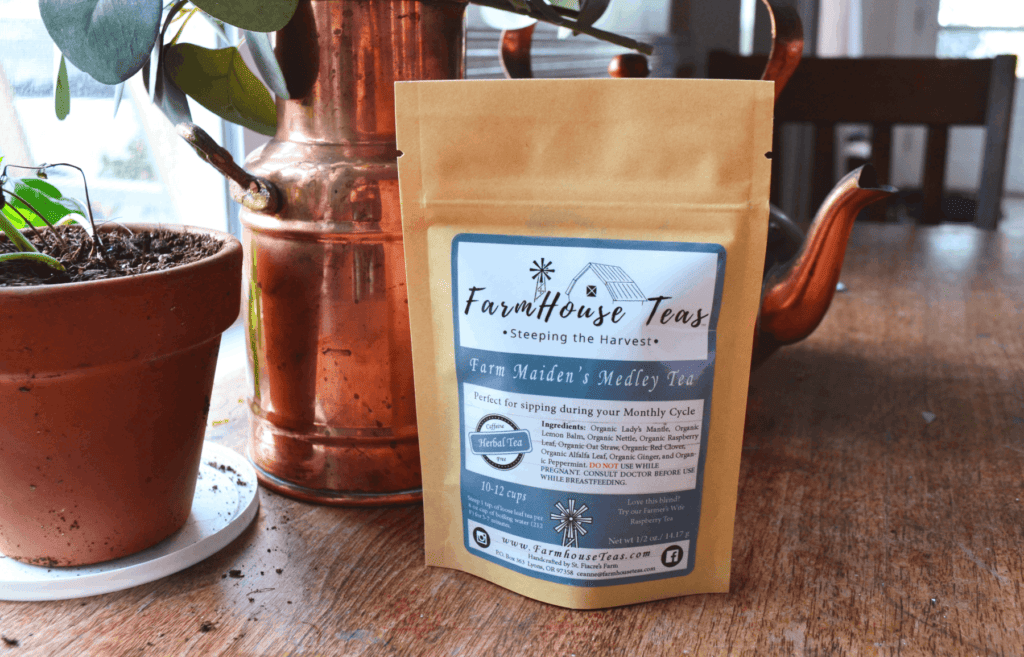
I heard amazing things about the Farm Maiden’s Medley tea balancing hormones.
The Farmer’s Wife Raspberry Herbal Tea includes raspberry leaves, red clover blossoms, hibiscus and elderberry among other herbs. Not only is it full of great herb but it’s beautiful!
My favorite as of now is the Lamplighter Lemonette featuring lemon balm, lemon peel, rose hips, calendula and more.

Other Posts You May Like
How to Help Allergies with Chiropractic Treatment
Powerful Ginger Honey Lemon Benefits For Your Family
Does Einkorn Cause Inflammation? Gluten Free and Autoimmune Disorders
Hope this has given you some great ideas for how to use tea to help your hormones!
From the Hilltop,

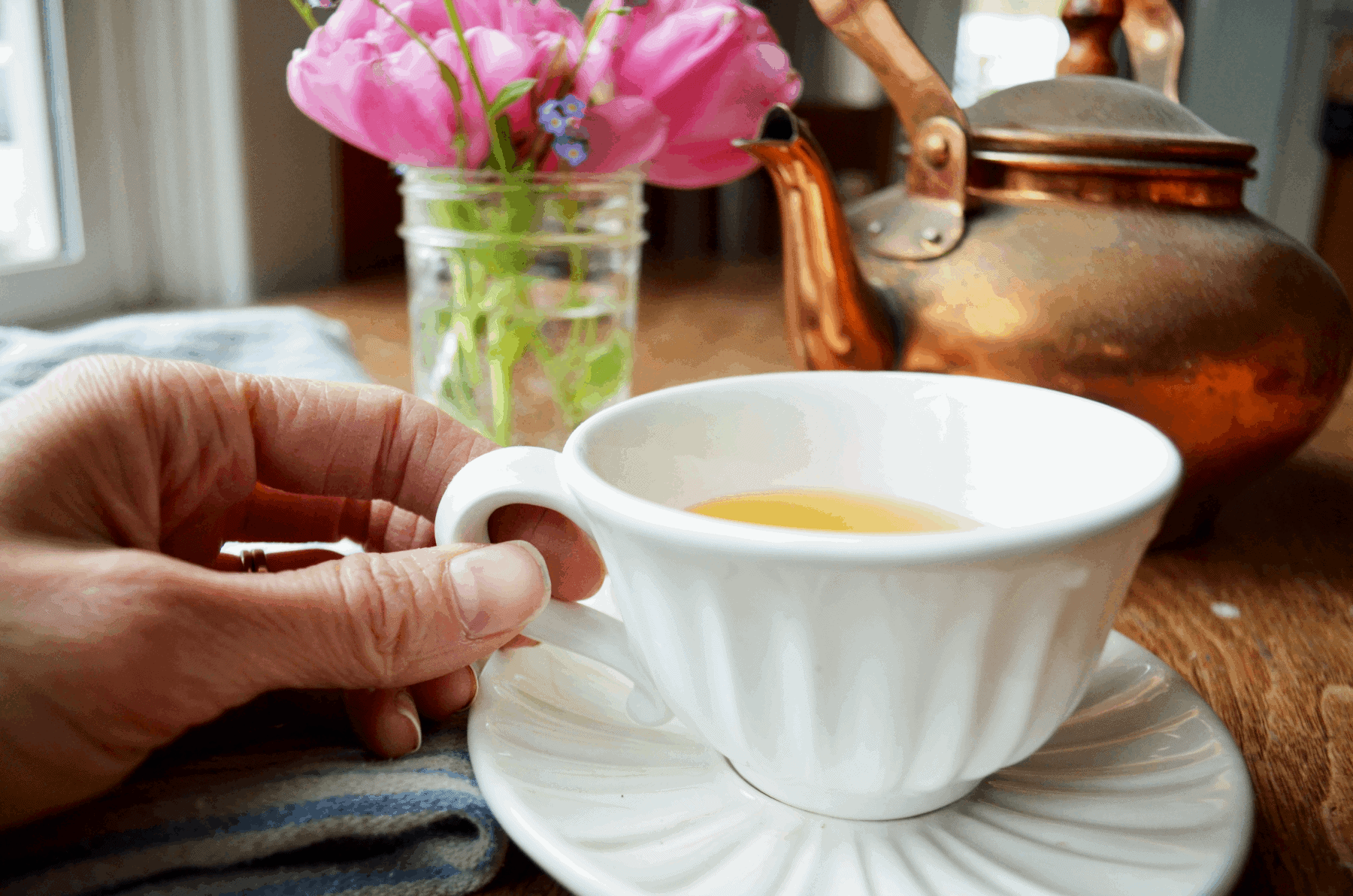
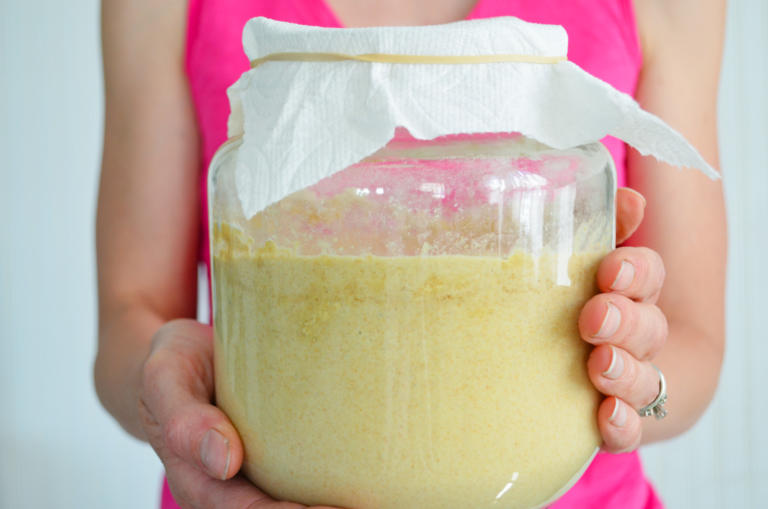


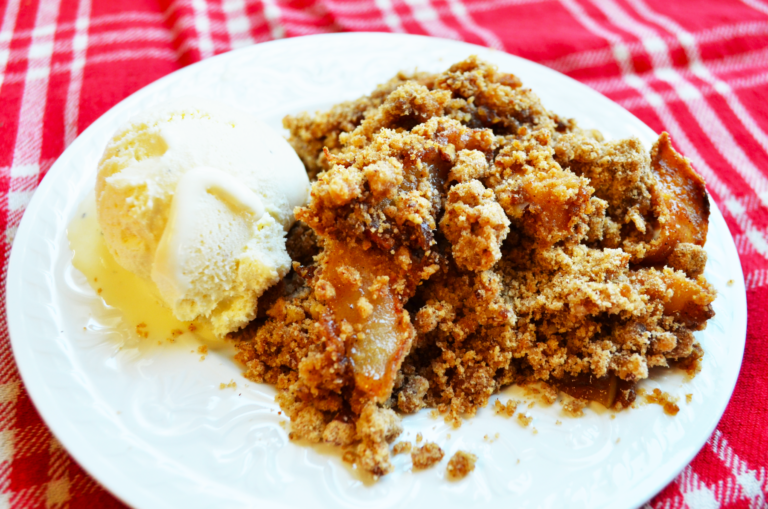

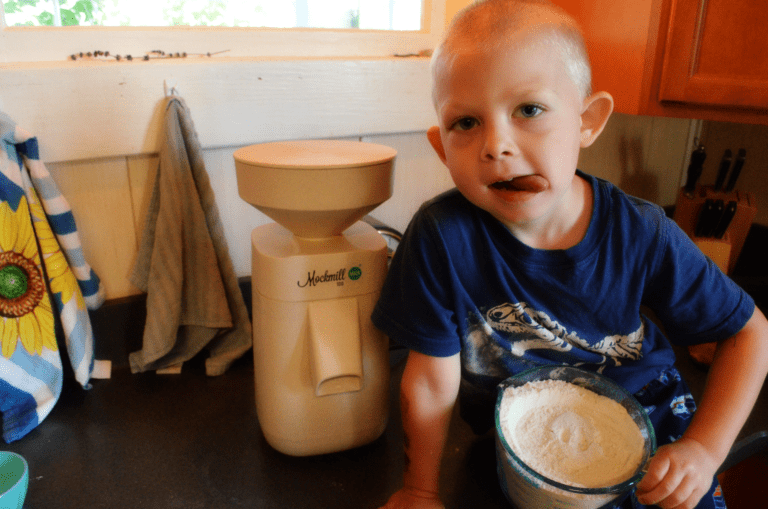
Thanks! So much great information! Not sure if you’re aware that Ashwagandha is not safe during pregnancy (Herbalist and Dr. AvivaRomm.com has a lot of information on this.)
Yes. Thank you. Definitely research every herb you use if pregnant. There are a few here that should not be used during pregnancy. I tried to make it clear for people to research and talk to a doctor before using them because I could not list all the possible side effects. These are powerful and may have unwanted effects depending on the situation. Best to research first.